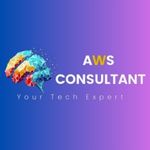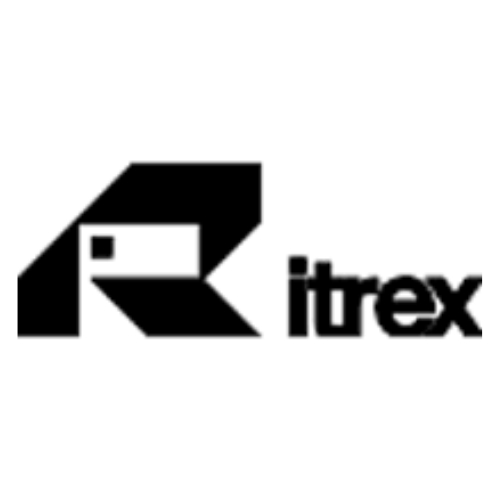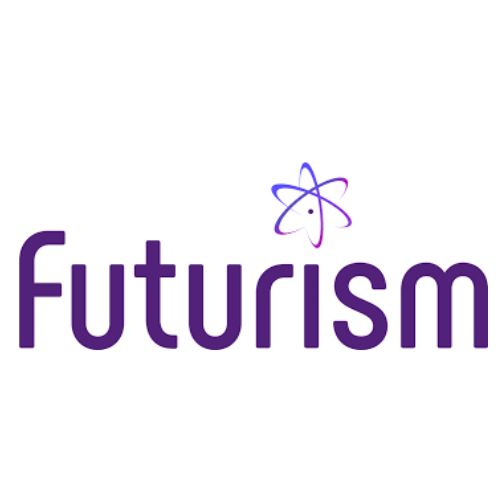
Top Fintech Software Development Companies
The fintech software development services market reached US $294.8 billion in 2023 and is projected to hit US $556.6 billion by 2030, with a 19.5% CAGR.
Top fintech software development companies specialize in building secure, scalable, and user-centric financial technologies that redefine how we interact with money. Whether it’s digital banking, peer-to-peer payments, wealth management, or crypto platforms, these companies offer end-to-end fintech solutions tailored to compliance and innovation. With expertise in APIs, AI/ML, blockchain, and data analytics, they help startups and financial institutions alike launch cutting-edge products with confidence. Fintech developers also prioritize robust security protocols and regulatory adherence, making them ideal partners in the highly sensitive world of finance. Choose from the best to bring your digital finance vision to life.
List of the Best FinTech Software Developers | Top Fintech Software Development Companies in the World

-
Employees: 11-50
-
Min. Project amount: $25000
-
Country: Pune, India

AZ Citation Services
-
Employees: 11-50
-
Min. Project amount: $1,000+
-
Country: 1515 N Queen St Unit 804 Arlington, VA, United States 22209

Cubix
-
Employees: 251 - 500
-
Min. Project amount: $25,000+
-
Country: 560 Village Blvd. Suite 120, #3 West Palm Beach, FL 33409

Hyperlocal Cloud
-
Employees: 101 - 249
-
Min. Project amount: $10000
-
Country: USA

ITRex Group
-
Employees: 250 - 999
-
Min. Project amount: $25,000+
-
Country: Aliso Viego, CA

Grinteq
-
Employees: Employees 50 - 249
-
Min. Project amount: $10,000+
-
Country: 1412 Broadway Fl 21v NY, NY 10018 USA

Techgropse
-
Employees: 50 - 249
-
Min. Project amount: $10,000+
-
Country: Corp. Office 3435 North Druid Hills, D. Decatur GA, USA

Invensis Inc
-
Employees: 1,000 - 9,999
-
Min. Project amount: $1,000+
-
Country: Invensis Inc. 1000 N West Street, Suite 1200, DE 19801, USA, Wilmington, Delaware, USA

Magneto IT Solutions
-
Employees: 51-250
-
Min. Project amount: 10000+
-
Country: New York, USA

Futurism Technologies
-
Employees: 501 to 1000
-
Min. Project amount: $25000
-
Country: USA, Germany, UAE, India, Australia
1.What Does a Fintech Software Development Company Do?
A fintech software development company designs, develops, and maintains software products tailored to the financial industry. These include mobile banking apps, digital wallets, robo-advisors, lending platforms, insurance tech solutions, and blockchain-based systems. They also provide services like API development, payment gateway integration, KYC/AML compliance, and data encryption to ensure security and legal adherence.
💳 Designs and Develops Financial Applications
Fintech development companies create secure and scalable digital products like mobile banking apps, investment platforms, e-wallets, payment gateways, and peer-to-peer lending solutions. These tools simplify how users manage money, transfer funds, invest, and access financial services.
🔐 Implements Strong Security & Compliance Measures
Since fintech deals with sensitive financial data, these companies prioritize data encryption, multi-factor authentication, KYC/AML compliance, and other regulatory standards like PCI-DSS, GDPR, or SOC 2 to protect both users and businesses from fraud and legal risks.
📊 Builds Custom Financial Software for Businesses
From automated accounting systems to financial analytics dashboards and loan management platforms, fintech developers help businesses streamline their financial operations and decision-making through tailored, intelligent software solutions.
🧠 Integrates AI, Blockchain, and Analytics
Modern fintech developers integrate AI for fraud detection, chatbots for support, machine learning for credit scoring, and blockchain for decentralized finance (DeFi), smart contracts, and transparent ledgers — improving both trust and innovation in finance.
🔄 Enables Third-Party Integrations and Open Banking
They also develop systems that connect with APIs for open banking, allowing seamless integration with banks, payment processors, CRMs, or financial data providers — enabling businesses to deliver better customer experiences and expand service offerings.
2.What Security Features Are Essential in Fintech Software?
Given the sensitivity of financial data, top fintech companies implement:
End-to-end encryption
Multi-factor authentication (MFA)
Secure API integrations
Real-time fraud detection
GDPR, PCI-DSS, and other regulatory compliance
Security is not optional in fintech — it’s a fundamental pillar of product design.
1. End-to-End Data Encryption
All sensitive data — whether at rest or in transit — must be protected using strong encryption protocols (e.g., AES-256, TLS 1.2+). This ensures that even if data is intercepted, it remains unreadable to unauthorized parties.
2. Multi-Factor Authentication (MFA)
MFA adds an extra layer of security beyond just usernames and passwords. It typically combines something the user knows (password), has (smartphone), or is (biometric data like fingerprints or facial recognition).
3. Role-Based Access Control (RBAC)
Fintech software must restrict access to critical data and functions based on user roles. RBAC ensures that employees, customers, and third-party vendors can only access what’s necessary for their tasks — reducing the risk of internal threats.
4. Fraud Detection and Monitoring Systems
Advanced fintech apps use AI-powered anomaly detection to monitor transactions in real-time and flag suspicious behavior. These systems can identify patterns that might indicate fraud, account takeovers, or money laundering.
5. Regulatory Compliance (KYC, AML, PCI-DSS, GDPR)
Compliance isn’t just a legal obligation — it’s a trust factor. Fintech software must adhere to standards like:
KYC (Know Your Customer)
AML (Anti-Money Laundering)
PCI-DSS (for payment processing security)
GDPR or CCPA (for user data privacy)
6. Secure APIs and Integration Management
Fintech platforms often connect with banks, payment processors, and third-party services. It’s vital to implement secure API gateways, rate limiting, and encrypted API communication to prevent breaches via external systems.
7. Regular Security Audits and Penetration Testing
Top fintech developers routinely perform code reviews, penetration tests, and vulnerability scans to identify and patch weaknesses before attackers can exploit them.
3.What Technologies Do Fintech Developers Use?
Leading fintech developers work with a modern stack, including:
Backend: Node.js, Python, Java, .NET
Frontend: React, Angular, Vue
Databases: PostgreSQL, MongoDB, MySQL
Blockchain: Ethereum, Hyperledger
AI/ML for personalization and risk modeling
Cloud platforms like AWS, Azure, and GCP
These technologies ensure scalable, performant, and future-proof financial products.
1. Programming Languages & Frameworks
Fintech software demands stability, performance, and security. Popular choices include:
Python – for data analytics, AI, and algorithmic trading platforms
Java & Kotlin – for backend systems and Android apps
Swift – for iOS mobile apps
JavaScript (React, Node.js) – for responsive frontends and scalable APIs
C#/.NET – for enterprise-level financial systems
2. Blockchain & Distributed Ledger Technologies (DLT)
Used in cryptocurrency, smart contracts, and secure transaction records. Common tools include:
Ethereum, Hyperledger, Solidity – for blockchain apps
Chainlink, Polkadot – for smart contract integration
IPFS – for decentralized storage
3. Artificial Intelligence & Machine Learning
AI powers fraud detection, credit scoring, chatbots, and financial forecasting. Technologies include:
TensorFlow, PyTorch – for model training
Scikit-learn, XGBoost – for machine learning
NLP libraries – for conversational interfaces and sentiment analysis
4. Cloud Platforms & Infrastructure
Scalability and uptime are essential. Fintech apps are typically hosted on:
AWS (Amazon Web Services) – most widely used in fintech
Microsoft Azure – especially for enterprise fintech
Google Cloud Platform (GCP) – for data and AI-driven products
Tools like Docker and Kubernetes are used for containerization and orchestration
5. APIs and Open Banking Standards
For payment processing and data integration, developers use:
Plaid, Yodlee – for bank data aggregation
Stripe, PayPal, Razorpay – for payments
Open Banking APIs – to connect with financial institutions under regulated frameworks
6. Cybersecurity & Compliance Tools
Security is critical. Common technologies include:
OAuth2.0, JWT – for secure authentication
SSL/TLS, AES encryption – for secure data transmission
SIEM tools (e.g., Splunk) – for threat monitoring
Compliance SDKs – for KYC/AML integration
4.How Do Fintech Companies Ensure Regulatory Compliance?
Compliance is baked into the development process. Top firms:
Stay updated on local and global financial regulations
Build features for KYC, AML, and transaction monitoring
Use secure data storage and audit trails
Integrate legal counsel and compliance specialists into the dev team
This proactive approach helps clients avoid penalties and maintain trust.
1. Understanding Applicable Laws and Standards
Fintech companies begin by identifying the specific regulations relevant to their operations and target markets. These may include:
KYC (Know Your Customer)
AML (Anti-Money Laundering)
PCI-DSS (for secure payment processing)
GDPR / CCPA (for data privacy)
SOX / SOC 2 (for audit and data integrity)
Compliance depends on jurisdiction (e.g., RBI in India, FCA in the UK, SEC/FINRA in the US).
2. Implementing KYC and AML Protocols
Fintech firms integrate identity verification and fraud prevention tools to comply with KYC and AML rules. This includes:
Document scanning & biometric verification
Transaction monitoring for suspicious activity
Sanctions list screening (e.g., OFAC)
3. Using Regulatory Technology (RegTech)
Many fintech companies adopt RegTech solutions to automate compliance. These tools help:
Track regulatory changes in real-time
Automate audit trails and reporting
Conduct ongoing due diligence and risk assessments
4. Hiring Compliance Officers and Legal Experts
Most mature fintechs employ dedicated compliance officers or teams with legal, financial, and technical expertise. They ensure operations align with regulations and advise on licensing, audits, and reporting obligations.
5. Conducting Regular Audits and Risk Assessments
Internal and third-party security audits, penetration testing, and compliance reviews are conducted to uncover vulnerabilities and maintain adherence. Findings are documented and used to improve systems.
6. Maintaining Transparent Data Handling and Consent Practices
To meet privacy laws like GDPR, fintech apps must:
Obtain user consent for data collection
Clearly disclose how data is used
Provide data portability and deletion options
Securely store and transfer sensitive financial data



